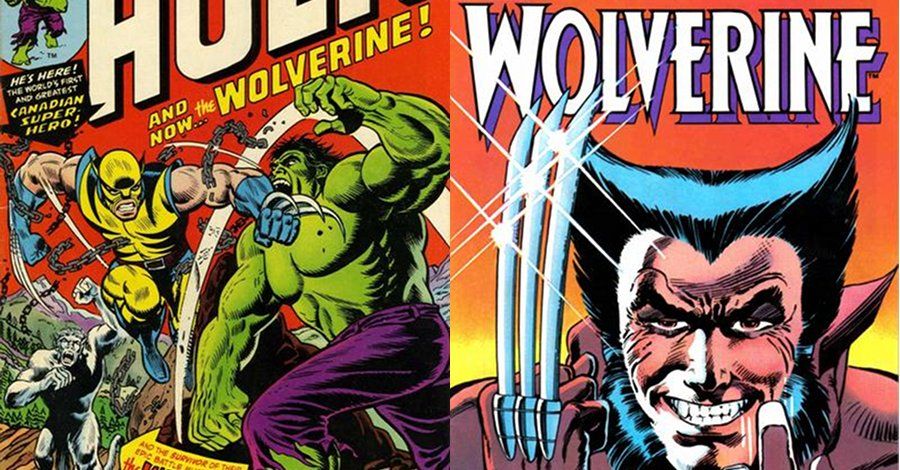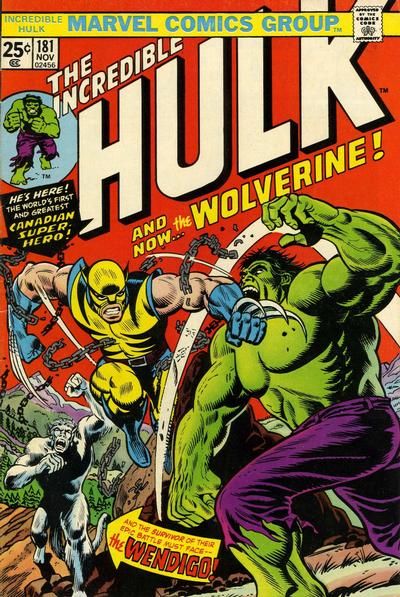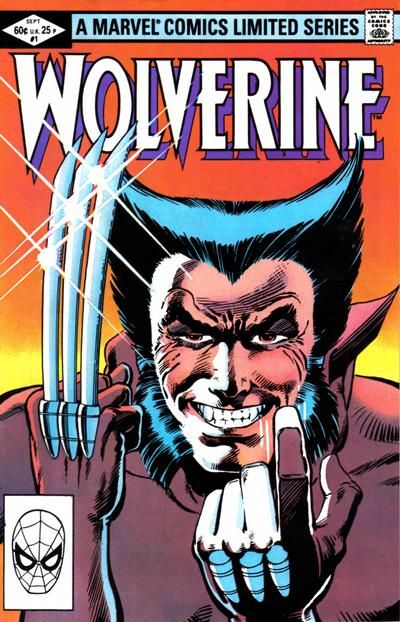Wolverine's death is approaching, and creators who have worked on both past and present "Wolverine" comic books recalled their time with the Marvel character and talked about what his death means this past weekend at Baltimore Comic-Con. Panelists included legendary artist Herb Trimpe, "Death of Wolverine" writer Charles Soule, original "Wolverine" solo series inker Joe Rubinstein, longtime scribe Frank Tieri and initial "Savage Wolverine" writer and artist Frank Cho, who joined moderator/Marvel SVP of Publishing Tom Brevoort to talk the legacy of the man called Logan.
Brevoort kicked the panel off by asking Trimpe about his experiences working with Wolverine. Trimpe was the artist responsible for drawing the mutant in his first appearance on the last page of "The Incredible Hulk" Vol. 1 #180. Trimpe said his work on Wolverine was brief, and told a story about that particular page turning back up recently. He had given it to a young comic book fan about 45 years ago -- he was the son of Trimpe's wife's college friend -- and that kid grew up and ended up working with Trimpe's agent to sell the page through Heritage Auction House. Bidding for the page reached $110,000 in the first 24 hours and ended at $657,000.
Switching from Wolverine's first appearance to his upcoming death, Brevoort asked Soule what made him want to tackle the death story. Soule said, "I like writing stories that aren't necessarily the typical thing if I can get them. It seemed like this would be a book that would put a stamp on a character that has already had a lot of amazing things happen to him, and it was a chance to maybe write something that felt little different and was a little bit new. I'm thrilled to be doing it. I'm amazed at the reaction to the first issue. People seem to really like it."
Soule continued, "When you write this book, you realize the reach that Wolverine really has. From that first panel to now, it's mind-blowing to me. It gets even better from here -- issues two, three and four build and build and build. I've seen the last page, which is kind of heartbreaking to look at, and it's sad, but I think it's appropriate for those 40 years of stories."
Wolverine is popular with fans, and creators seem attracted to the character as well. Brevoort asked Tieri and Cho what appealed to them about the character. Tieri said he loves Wolverine, but his favorite character is probably Sabretooth because he's such a bastard. Tieri sees commonalities between Sabretooth and Wolverine and said, "Sabretooth and Wolverine, the similarity between them is they both have their demons, but Sabretooth lets them fly whereas Wolverine always tries to keep those demons in check. He would constantly try to do the right thing whereas Sabretooth says 'I don't give a crap.'" Tieri got a jab in at Soule about killing Wolverine.
Cho said he was a big fan of Wolverine growing up: "I fell in love with Wolverine back in the '80s. I started with issue #166 of "Uncanny X-Men." Wolverine was a short, kind of odd-liking guy that would then kick people's asses so that's why I kind of latched onto him. It was a blast writing and drawing him."
Next, Brevoort turned to Rubinstein and asked about the 1982 "Wolverine" limited series he inked. Rubinstein said Frank Miller came up to him and asked if he wanted to do "Wolverine," and he said yes without knowing it was Wolverine's first solo title or that it would become historic. Rubinstein said he modeled the cover of the first issue of "Wolverine" on Jack Nicholson, and then Miller called and said, "'I'm sending you a book, look at it while you ink the rest of the job,' and it was 'The Films of Clint Eastwood.' That's who he is in the rest of the series."
The panel wrapped with questions from the audience, and one man asked the panel why they would kill a character because deaths in comic books don't seem to last or be meaningful. Brevoort said, "There are two experiences that every person on this planet will have: one is being born and one is not being around anymore. So, telling a story about the death of a character means tapping into an experience that's universal and that is something that everybody in some way, shape, or form can relate to. Granted, most of us are not going to come back afterwards. But, the fact remains that it's such a primal experience. Everyone has seen death around them. It taps into something that's very much at the bedrock of human experience."
Another member of the audience asked whether Wolverine's death would have repercussions across other comics in the Marvel Universe. Brevoort said, "There are definitely going to be books after Wolverine's death that deal with the after effects of the fact that Wolverine is dead. Pretty much all of the 'X-Men' titles and a few more beyond that, because it's kind of a big thing for a lot of those characters." Soule added, "There are two titles in particular; one's called 'Death of Wolverine: The Logan Legacy' and the other is 'Death of Wolverine: The Weapon X Program' and they're basically both indirect sequels to the 'Death of Wolverine.' Those series are almost not so much how the heroes are handling it but how some of the bad guys are handling it."



